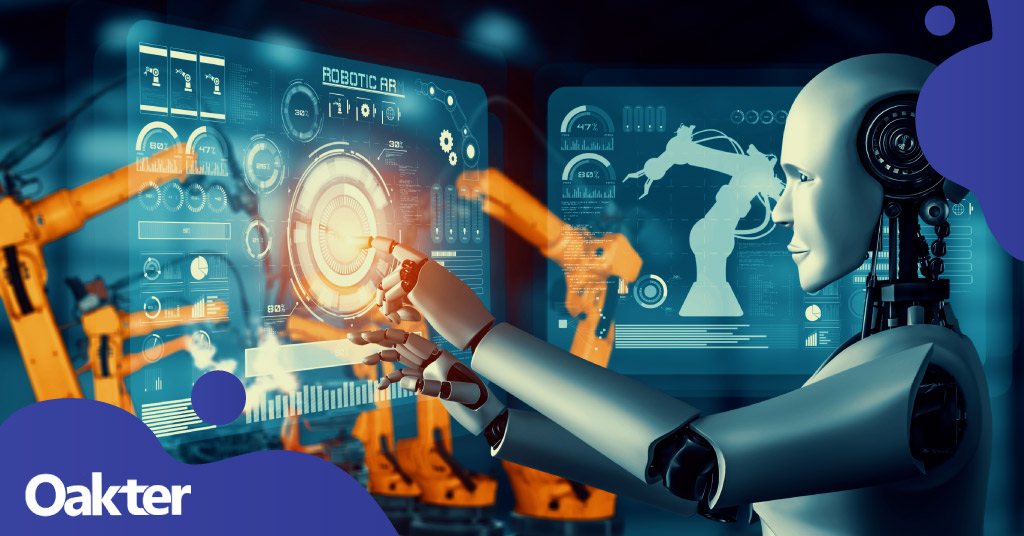
Factors to Discuss With Third-Party Manufacturing Team for AI Projects
Artificial intelligence (AI) is a boon for manufacturing teams for multiple reasons. It lets manufacturing teams monitor their facilities in real-time. AI helps collect vast amounts of operational data to track core key performance indicators (KPIs), forecast accurate delivery dates, avoid missing deadlines, predict potential disruptions to the supply chain, and much more.
Mckinsey states that the Fourth Industrial Revolution (4IR) technologies will create $3.7 trillion in value by 2025. Artificial intelligence alone is expected to generate $1.2-$2 trillion for manufacturing and supply chain management. This article will discuss successful AI implementation, potential roadblocks, and things businesses must discuss before partnering with third-party manufacturing teams.
Importance Of AI In 2022
AI depends on machine learning for data. Machine learning will help you compile data from multiple sources and understand it. AI recommends data-driven actions curated through machine learning.
The correlation between machine learning and AI is like the hot stove analogy. When you advance your hand toward a hot stove, your brain will prevent you from touching it by bringing the consequences to mind. That is the same as machine learning. And AI is the technical ability to pull your hand back before it gets burned.
Artificial Intelligence in Manufacturing

AI is used to make data-backed actionable decisions accurately in manufacturing. Here, AI is relevant in forecasting and understanding possible bottlenecks.
If you have enough historical data, AI can help you predict, identify, and understand things like:
1. The same inputs on the same machines often driving different outcomes.
2. Occasional manufacturing scenarios that don’t make sense.
3. Analysing large amounts of data in one go — something that might not be possible for a human analyst.
4. Getting a holistic view of all the interrelated processes.
Financial Impact of AI
There are five areas where AI can have a substantial financial impact.
1. Predictive Maintenance: AI can help predict how a machine will behave under different payloads. Historical data from maintenance logs can help you identify what needs to be fixed, when, and how. It significantly reduces overall downtime and will save time and money.
3. Scrap Reduction: Predicting the future behaviour of your processes through various metrics can help minimise scrap and improve product quality.
4. Increasing Output: Predicting possible bottlenecks enables you to improve your manufacturing outcomes proactively. Without any obstacles, your production capabilities will likely increase.
5. Demand And Inventory Forecasting: AI enables you to forecast and promptly acquire critical parts that need replacing. It enables you to meet the demands so that no process comes to a standstill.
5 Things You Need To Discuss With Third-Party Manufacturing Teams
AI solutions in manufacturing bring forward a lot of doubts. Most of them revolve around one thing — is the investment justified? Implementing AI in manufacturing depends on three factors — problem, persona, and process.
You need to define specific problems for AI to solve. You then need the right team (operations, tech, finance, etc.) involved. Lastly, you need a solution that tackles the problem with the help of AI. Now that you know the three factors, let’s move on to 5 things you must address while implementing AI and working with a third-party manufacturing team.
1. The Pilot Project
As with any new technology, begin with a pilot project, like piloting AI on one production line. Create iterations that work for one part of the business and then extend it to different parts of your business. You can later scale the technology incrementally and implement AI in other parts of your project.
2. Identify the Problems You Want AI to Solve
Begin with exploring how a particular technology will solve the problem at hand. Discuss what problem you want AI to solve and how you can add AI capabilities to your existing processes with your third-party manufacturing team. You must have specific use cases through which AI can solve business problems or provide demonstrable value. The specifics will always vary from industry to industry.
3. Prioritise Concrete Value
With help from your third-party manufacturing team, assess the potential business and financial value of the AI implementations you decide on. Prioritise AI implementations that bring immediate benefit and financial value to your business.
4. Acknowledge The Capability Gap
There is a fine line between what you aim to accomplish and the organisational ability of your third-party manufacturing teams. It is crucial to discuss what your third-party manufacturing teams are capable of implementing. Evaluate the capability gaps before jumping into a full-blown AI implementation.
5. Integrate Data
Clean your data before your third-party manufacturing team implements AI in your business processes. Internal business data is spread out in multiple data silos from legacy systems and may be monitored by teams with differing priorities.
Therefore, it is crucial to curate and streamline high-quality data, integrate it, and sort out inconsistencies so that the data is accurate and insightful.
Get Started With The Best
AI is impacting many areas of the manufacturing industry. As we move forward, use cases of AI are evolving in various ways. To be competitive, you must start planning the implementation of AI in your business. It will enable you to unlock potential business growth.If you’re looking for a third-party manufacturing partner, Oatker is the best option for you, especially in the internet of things (IoT) and smart devices domain. Reach out to us today to learn more about our services.

